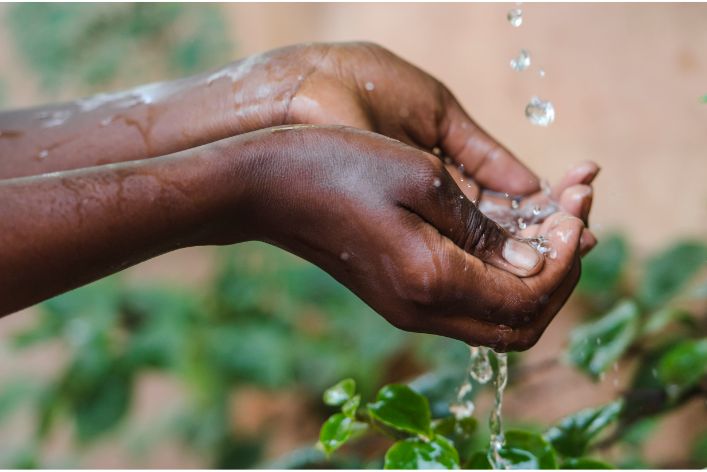Introduction
Climate change has become a global crisis affecting various sectors, including health. Its impact on child health cannot be overemphasized, especially in Nigeria. Children are among the most vulnerable groups affected by climate change, and this has resulted in a significant threat to their health and wellbeing.
Nigeria, as a developing country with limited adaptive capacity, is particularly vulnerable to climate change and its effects on child health.
The current situation in Nigeria is dire, with the country experiencing an increase in extreme weather events such as floods, droughts, and heatwaves. These events have had a significant impact on child health, leading to an increase in water-borne diseases, malnutrition, respiratory illnesses, and other health-related issues.
Additionally, climate change has resulted in the destruction of ecosystems and the loss of biodiversity, which further exacerbates the challenges faced by children in Nigeria. It is crucial to address the impact of climate change on child health in Nigeria as it poses a threat to sustainable development.
Children are the future of any nation, and taking care of their health and wellbeing is essential for the growth and progress of a country. As such, there is a need for urgent action to mitigate the impact of climate change on child health and ensure their survival. This can be achieved through a multi-sectoral approach that incorporates health, environment, and education sectors.
Essentially, the impact of climate change on child health in Nigeria cannot be ignored. It threatens the future of the country and requires the attention of policymakers, health practitioners, and other stakeholders to address.
This section serves as a primer for understanding the importance of climate change and its impact on child health in Nigeria, highlighting the need for action to safeguard the health and wellbeing of children in the country.
Effects of Climate Change on Child Health in Nigeria
Climate change has been a serious global challenge in recent years and Nigeria is not excluded from its negative impacts, especially on child health.
Here are some of the effects of climate change on child health in Nigeria:
Increased Cases of Respiratory Diseases due to Air Pollution
Climate change has resulted in increased air pollution, which is caused by greenhouse gas emissions and other harmful substances released by human activities. Children, who have developing respiratory systems, are more susceptible to respiratory diseases like asthma and bronchitis.
The higher concentration of air pollutants in Nigeria’s urban centers also contribute to respiratory problems among children.
Spread of Malaria and Other Vector-Borne Diseases due to Increased Temperature and Humidity
Nigeria experiences high temperatures and humidity, which provides a conducive environment for the breeding of disease-carrying mosquitoes and other vectors. Climate change has increased the frequency and intensity of these environmental conditions, leading to a higher risk of malaria and other vector-borne diseases among children in Nigeria.
Malnutrition and Food Insecurity due to Erratic Rainfall Patterns and Crop Failure
Nigeria depends largely on agriculture, which is vulnerable to climate change impacts such as erratic rainfall patterns and crop failure. This has adverse effects on food security and malnutrition, especially among children. With less food available, children are likely to suffer from malnourishment and related illnesses.
Impact on Access to Safe Drinking Water
Climate change can disrupt the water cycle, leading to droughts or floods that can contaminate water sources, making it difficult for children to access safe drinking water. Lack of access to clean water can lead to waterborne diseases like diarrhea and cholera, which can be fatal to children.
In general, the impact of climate change on child health in Nigeria is a serious concern that should not be ignored. Taking steps to mitigate climate change and its effects is crucial.
This includes reducing greenhouse gas emissions, promoting sustainable agriculture practices, and improving access to safe drinking water and sanitation facilities. By doing so, we can ensure that children in Nigeria have a healthy and prosperous future.
Parenting Made Just for You
Get personalized Parenting Solutions tailored to your child’s needs. Transform your parenting journey with expert guidance in 1-3 days.
Get StartedRead: Guidelines on Hygiene Practices for Child Health
Vulnerable Populations
Climate change has far-reaching effects on vulnerable populations, including children. In Nigeria, there are several groups of children who are particularly at risk due to climate change.
Children living in urban slums
Children living in urban slums are particularly vulnerable to the effects of climate change. Overcrowded areas lacking sanitation can spread diseases like cholera and diarrhea. Climate change intensifies this issue through increased flooding, contaminating water sources and promoting disease spread.
Children with pre-existing health conditions
Children with pre-existing health conditions, like asthma or sickle cell disease, may experience heightened vulnerability to climate change impacts. Extreme heat can worsen asthma symptoms, and changing weather patterns can influence the spread of mosquito-borne diseases such as malaria and dengue.
Children living in rural areas with limited access to healthcare services
Limited access to healthcare services in rural areas can increase the vulnerability of children to health impacts of climate change. Changing weather patterns can affect crop yields, food security, and lead to malnutrition and other health issues.
Extreme weather events like floods or droughts can hinder families’ healthcare access, especially in remote areas.
Children of poor families who cannot afford healthcare services
Limited access to healthcare services may increase the health risks of climate change for children in poor families. These families may struggle to afford necessary treatments or medications for climate-related health problems. This struggle can worsen existing health conditions and cause new ones.
Minimizing negative climate change impacts on children’s health in Nigeria requires addressing vulnerable populations’ needs. Improving healthcare access, raising public awareness of climate-related health issues, and promoting sustainable development practices enhance climate resilience.
Read: Strategies for Preventing Childhood Diseases in Nigeria

Mitigation and Adaptation Strategies
To combat climate change’s impact on child health in Nigeria, it is crucial to implement policies that reduce greenhouse gas emissions and improve air quality. Several mitigation and adaptation strategies can minimize the effects on child health..
Implementation of Policies to Reduce Greenhouse Gas Emissions and Improve Air Quality
In Nigeria, the government can adopt policies to reduce greenhouse gas emissions and improve air quality. Regulating and monitoring industrial emissions, promoting clean energy use, and adopting sustainable transportation policies are necessary for the government. The government should establish bicycle lanes and encourage carpooling.
Provision of Safe Drinking Water and Sanitation Facilities
Climate change often leads to water shortages, which could affect child health. Mitigating climate change’s impact on child health in Nigeria requires providing safe drinking water, sanitation, and protected water sources. The government must establish water treatment plants for citizens’ safety.
Promotion of Climate-Resilient Agriculture and Food Systems
Climate-resilient agriculture and food systems can help mitigate the impact of climate change on child health in Nigeria. Farmers need to be educated on sustainable agricultural practices to reduce the effects of climate change. The government can also promote the use of drought-resistant crops and the adoption of technology to improve food production systems.
Improved Access to Healthcare Services in Vulnerable Areas
The impact of climate change on child health is often felt more in vulnerable and low-income areas. The government needs to ensure that healthcare services are accessible in these areas.
Unveil the Perfect Name that Tells Your Family's Story
Let us help you find a name that embodies your family's values, traditions, and dreams. Our personalized consultation weaves cultural insights to create a name that's uniquely yours.
Get StartedThis includes providing mobile healthcare centers and increasing the number of healthcare workers in rural areas. The government should also educate communities on proper health practices and the impact of climate change on child health.
In review, mitigating the impact of climate change on child health in Nigeria requires a collective effort from all stakeholders. The government needs to adopt policies that promote sustainable development and protect the environment.
The private sector can also contribute by adopting eco-friendly practices. It is important to educate communities on how to mitigate the impact of climate change and adapt to its effects. All these strategies combined can help minimize the impact of climate change on child health in Nigeria.
Read: Improving Child Mental Health through Nutrition
The Role of Stakeholders
Climate change is a global issue that requires collaborative efforts from stakeholders to address its impact on child health in Nigeria. The following are the roles of various stakeholders in mitigating the adverse effects of climate change:
Government agencies and policymakers
- Create policies that prioritize climate action and investment in child health.
- Work with other agencies and stakeholders to implement climate adaptation strategies.
- Promote research into the effect of climate change on child health and use the findings to inform policy decisions.
Non-governmental organizations
- Advocate for climate justice and invest in community-led climate adaptation programs.
- Support public awareness campaigns to build understanding of the link between climate change and child health.
- Partner with local communities to develop sustainable solutions to mitigate the effects of climate change on child health.
Healthcare providers
- Monitor changes in child health patterns and develop early warning systems for climate-related illnesses.
- Develop and implement climate-sensitive health interventions, such as heat wave alert systems and programmes to improve access to clean water and sanitation.
- Advocate for policies that prioritize the health of children impacted by climate change and build capacity within the healthcare sector to respond to climate-related health emergencies.
Educators and community leaders
- Teach children and community members about climate change and its impact on health.
- Develop climate education programs that provide children with the skills and knowledge they need to adapt to the effects of climate change.
- Mobilize community action towards climate mitigation and adaptation.
Parents and caregivers
- Take preventative measures to protect children from climate-related health hazards, such as heat stroke and respiratory illnesses.
- Advocate for policies that prioritize the health of children affected by climate change.
- Support climate education programs that empower children to take action to mitigate the effects of climate change.
Collectively, these stakeholders can help to reduce the impact of climate change on the health of Nigerian children by implementing effective adaptation strategies and building resilience at the individual, community and national level.
Read: Coping with Childhood Obesity: A Guide for Parents
Conclusion
Climate change has a devastating impact on child health in Nigeria, particularly in vulnerable communities. Rising temperatures, flooding, and drought increase the incidence of malnutrition, diarrhea, and other diseases among children. Urgent collaborative efforts are needed to mitigate and adapt to climate change, and to reduce its adverse effects on child health.
By working together, governments, NGOs, and communities can implement sustainable solutions to reduce carbon emissions and prevent the worst effects of climate change. Community education and awareness campaigns can also help to promote health-seeking behaviors and reduce the risk of disease.
Finally, healthcare providers can play a critical role in identifying and treating climate-related illnesses, as well as advocating for policy changes that support a healthier and more secure future for Nigeria’s children.
In a nutshell, the impact of climate change on child health in Nigeria cannot be overstated. However, with proactive measures and a commitment to collaborative action, it is possible to mitigate the negative effects of climate change and build a more resilient future for Nigeria’s children.




